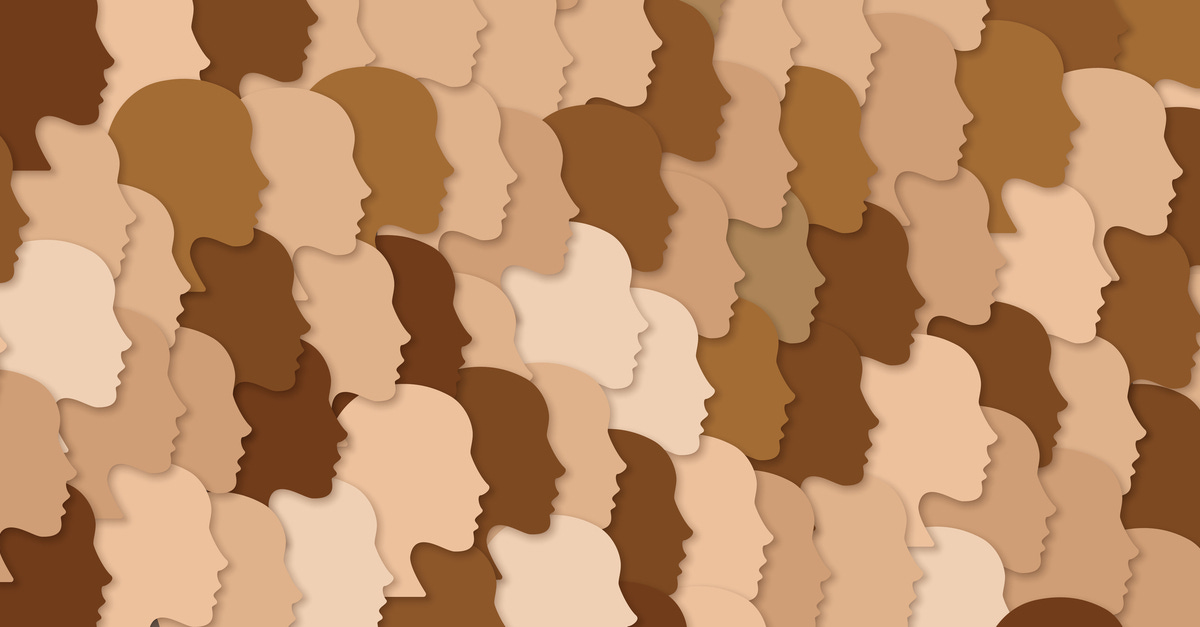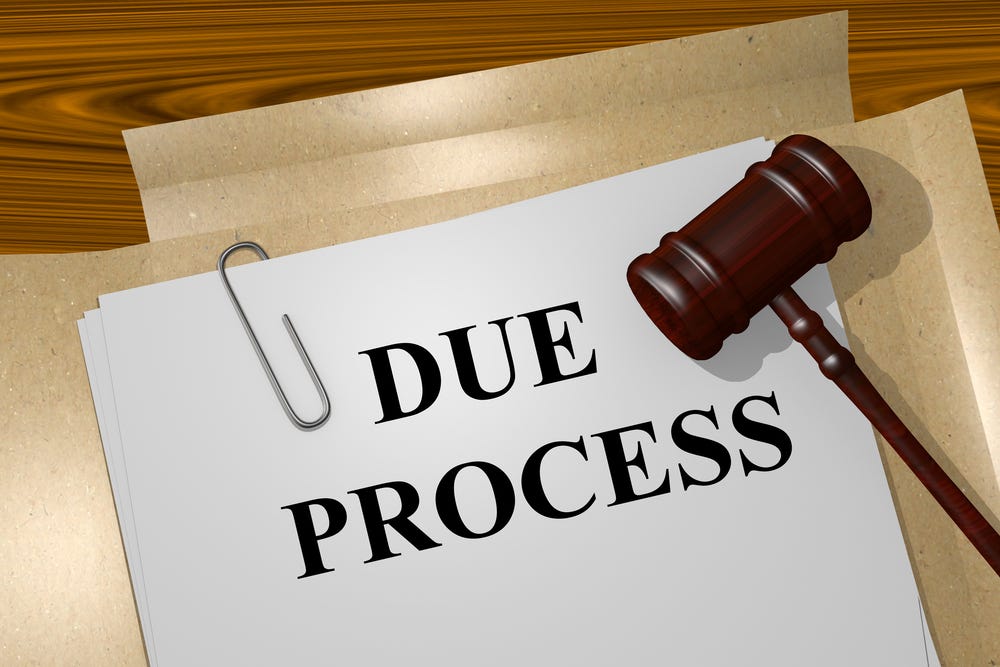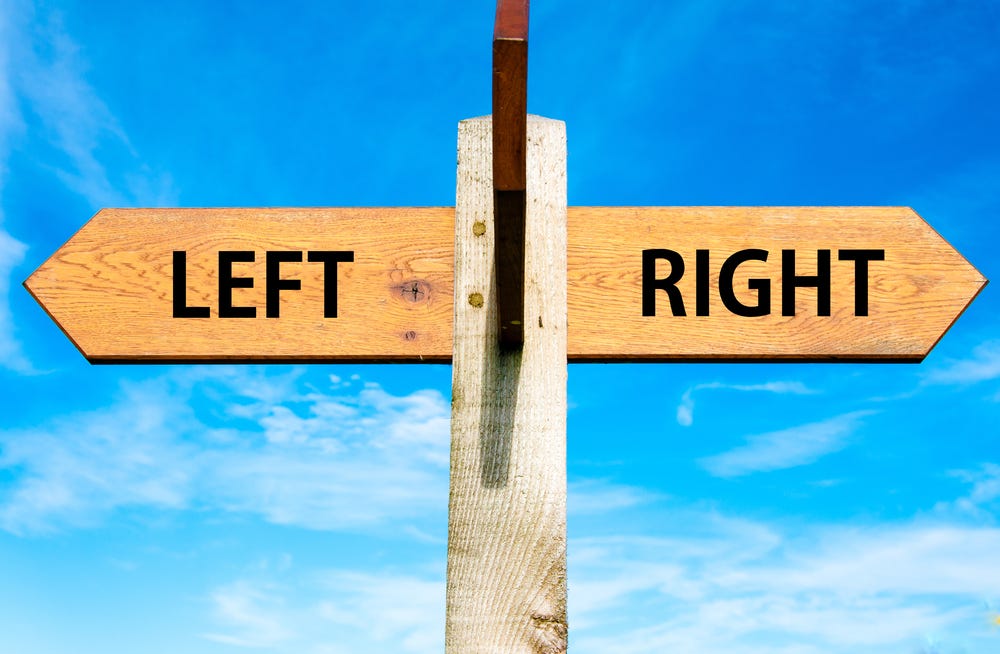E-Pluribus | December 13, 2021
What side of history are the woke really on, giving due process its due, and what to do if you find yourself living through The Turn - and what that is.
A round up of the latest and best writing and musings on the rise of illiberalism in the public discourse:
Andrew Sullivan: The Woke: On The Wrong Side Of History
Martin Luther King Jr. famously looked forward to the day when his children would “not be judged by the color of their skin,” but Andrew Sullivan writes that in today’s culture, there seems to be an obsession with skin color in all its tones and shades. Sullivan urges his readers to look to the future (2119) rather than the past (1619).
The “B&b” [“Black and brown”] formula, in other words, is on the wrong side of history. It is obsessed with a binary racial past that has long since been erased by a radically more complex future. It defines every group through the lens of “oppression” — at the expense of countless other complicating factors. Even within the CRT category of “brown,” there are those who identify as white, those who identify as black, and many whose own concepts of light, lighter, dark and darker skin are even more complex and bewildering. There are different nationalities, varying levels of socio-economic status, religions and languages — added to differences between men and women (the Latino political gender gap is very pronounced).
And that’s why the crude racial engineering the left elites are now so enthused about is almost certainly a dead end. It’s one thing to have a country in which white people clearly dominated black people in a society divided into those two categories; and to end the government’s clearly disparate treatment of those two groups. That was the 20th Century. It’s quite another thing to live in a 21st Century of mind-boggling racial diversity from every continent on earth, where Asian-American women now out-earn white men, where black men and Latino men have almost identical median earnings, and where native-born white Americans have a lower median household income than Indian, Pakistani or Syrian immigrants, among many others.
An attempt to craft systemic “racial justice” onto this ever-more complex and constantly changing sea of ethnic identities is practically speaking impossible. How does one adjudicate the racial power hierarchy between, say, first-generation Somali immigrants and fourth-generation Polish ones? How to measure the relative oppression of a millionaire Nigerian immigrant and a descendant of slaves in Alabama? Which groups are the oppressors and which are the oppressed? How much of this “oppression” occurs within groups as well as between them? And how can we know?
Read the whole thing.
Yascha Mounk: Jeannie Suk Gersen on the Importance of Due Process
Yascha Mounk of Persuasion interviews Harvard Law School professor Jeannie Suk Gersen about the importance of due process (among other things) and how some current trends pose a threat to this fundamental principle in our system of government. Gersen stresses that due process is not something to be flipped on and off depending on circumstances or who the beneficiary of that right may be at any given point in time.
Suk Gersen: Well, I think a lot of people associate due process with the U.S. Constitution, and actions against individuals undertaken by states. You have the ability to say to the government, “I am entitled to due process before you take away something of value, such as my life, my liberty, or my property.” The constitutional doctrine came about with the Supreme Court during the Warren Court years. Due process was essentially a way to try to protect people of color, African Americans, from being exploited and oppressed by governments, by states, especially in the criminal context and when there was a criminal defendant. The Supreme Court kind of put a thumb on the scale against racial discrimination by saying, “You need to give due process and this is what due process consists of.”
We have developed over the decades a more robust idea of what discrimination is and what the responsibilities of institutions are to protect people, whether it's students or employees, from discrimination and harassment. What do you do when you have an allegation? You have to allow that allegation to be made, and investigated, and adjudicated so that you could decide in a fair way whether the person who's accused ought to have something bad happen to them, like expulsion or suspension.
The only thing that stands between arbitrary exercises of institutional power against such individuals is due process. That's what I have been fighting for in the last several years in my writing, and also in my representation of various plaintiffs both internal to the university and also in other kinds of institutions. It's really extremely important to understand that some people associate due process now with the defense of people who've done bad things, like, for example, sexual assault on campus. It's now become kind of this trope that you have people who are accusing people of sexual assault, and then the other side says “Due process—I need due process.” Due process among some communities has somehow come to be associated with this sort of impunity for sexual assault. That is, in my mind, very wrongheaded. Due process is something that protects everyone, including victims and people who are alleging wrongdoing.
Liel Leibovitz: The Turn
Senior writer Liel Leibovitz at Tablet Magazine writes of his political evolution away from the left as he realized he could no longer identify with or defend a growing number of positions that the “left” represented. Leibovitz’s article is less concerned with where people end up ideologically than knowing why they stand where they stand as individuals rather than simply applying a label to themselves.
You may be among the increasing numbers of people going through The Turn right now. Having lived through the turmoil of the last half decade—through the years of MAGA and antifa and rampant identity politics and, most dramatically, the global turmoil caused by COVID-19—more and more of us feel absolutely and irreparably politically homeless. Instinctively, we looked to the Democratic Party, the only home we and our parents and their parents before them had ever known or seriously considered. But what we saw there—and in the newspapers we used to read, and in the schools whose admission letters once made us so proud—was terrifying. However we tried to explain what was happening on “the left,” it was hard to convince ourselves that it was right, or that it was something we still truly believed in. That is what The Turn is about.
You might be living through The Turn if you ever found yourself feeling like free speech should stay free even if it offended some group or individual but now can’t admit it at dinner with friends because you are afraid of being thought a bigot. You are living through The Turn if you have questions about public health policies—including the effects of lockdowns and school closures on the poor and most vulnerable in our society—but can’t ask them out loud because you know you’ll be labeled an anti-vaxxer. You are living through The Turn if you think that burning down towns and looting stores isn’t the best way to promote social justice, but feel you can’t say so because you know you’ll be called a white supremacist. You are living through The Turn if you seethed watching a terrorist organization attack the world’s only Jewish state, but seethed silently because your colleagues were all on Twitter and Facebook sharing celebrity memes about ending Israeli apartheid while having little interest in American kids dying on the streets because of failed policies. If you’ve felt yourself unable to speak your mind, if you have a queasy feeling that your friends might disown you if you shared your most intimately held concerns, if you are feeling a bit breathless and a bit hopeless and entirely unsure what on earth is going on, I am sorry to inform you that The Turn is upon you.
[…]
When “the left” becomes the party of wealthy elites and state security agencies who preach racial division, state censorship, contempt for ordinary citizens and for the U.S. Constitution, and telling people what to do and think at every turn, then that’s the side you are on, if you are “on the left”—those are the policies and beliefs you stand for and have to defend. It doesn’t matter what good people “on the left” believed and did 60 or 70 years ago. Those people are dead now, mostly. They don’t define “the left” anymore than Abraham Lincoln defines the modern-day Republican Party or Jimi Hendrix defines Nickelback.
So look at the list of things supported by the left and ask yourself: Is that me? If the answer is yes, great. You’ve found a home. If the answer is no, don’t let yourself be defined by an empty word. Get out. And once you’re out, don’t let anyone else define you, either. Not being a left-wing racist or police state fan doesn’t make you a white supremacist or a Trump worshipper, either. Only small children, machines, and religious fanatics think in binaries.
Read it all here.
Around Twitter
John McWhorter finds reason to hope New York City might be on its way to actually improving the education of its children:
Wesley Yang, Jeet Heer, Christina Sommers, and Cathy Young, among others, discuss The Great Awokening. Click through for more, but only if you know how to navigate Twitter:
Finally, some thoughts on identity and an open mind from Wharton School professor Adam Grant:








